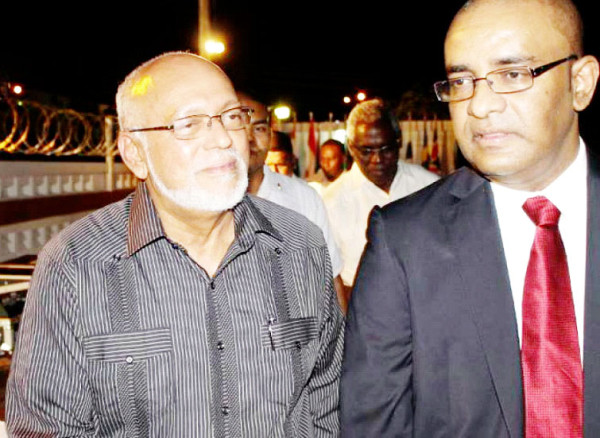At 65 and generally felt to be in fairly good health one might have thought that Donald Ramotar departed the political centre stage far too early though, in as sense, it was he who ‘called time’ on his own presidency. On the other hand there are some who might contend that the long-serving People’s Progressive Party (PPP) General Secretary was an unlikely President anyway and that his anointing only came about on account of the fact that he was virtually the ‘last man standing’ amongst the old guard of the Party.
As President he always bore a greater resemblance of a portly grandfather (until he begun to lose a considerable amount of weight during the latter period of his presidency) rather than the nation’s Chief Executive. As a public figure his profile was strikingly low-key and it was Ramotar himself who gave credence to the widely held view that he was no more than Bharrat Jagdeo’s proxy by retaining the former president’s Cabinet after he had earned the right to make changes. Some of his Cabinet members –notably his controversial Attorney General Anil Nandalall and his enduringly surly Home Affairs Minister and successor as party General Secretary Clement Rohee – managed to maintain decidedly higher public profiles than him throughout the period of his presidency.

There are those who have argued that Donald Ramotar’s protracted tenure as a team player within the PPP made him ill-equipped for the presidency, his predecessor in that office having made the grade based largely on his credentials as a maverick who made and followed his own rules.
It was felt that given the high profile that had preceded Jagdeo out of office after more than two terms Ramotar would always find that a demanding act to follow. That, as it happened, proved to be the case. Ramotar never seemed concerned about asserting his presidential self even at times when it was clear that Jagdeo was indulging in bouts of political muscle-flexing.
By appointing Jagdeo a Presidential Advisor at the start of his campaign for a second tilt at the presidency Ramotar was effectively sending a message that his predecessor would be his campaign manager. In effect, he was sealing his own political fate. A significant section of the electorate may have had their fill of the PPP but its was Jagdeo’s boisterous – some say poisonous – elections campaign on Ramotar’s behalf that, to a large extent, won the coalition the presidency.
The loss of the elections effectively meant that Jagdeo was no longer bound by any protocols to act with restraint in disdainfully jettisoning the ousted President from the forefront of the PPP. Donald Ramotar’s swift rise and fall in national politics is a poignant lesson in the vagaries of politics.




